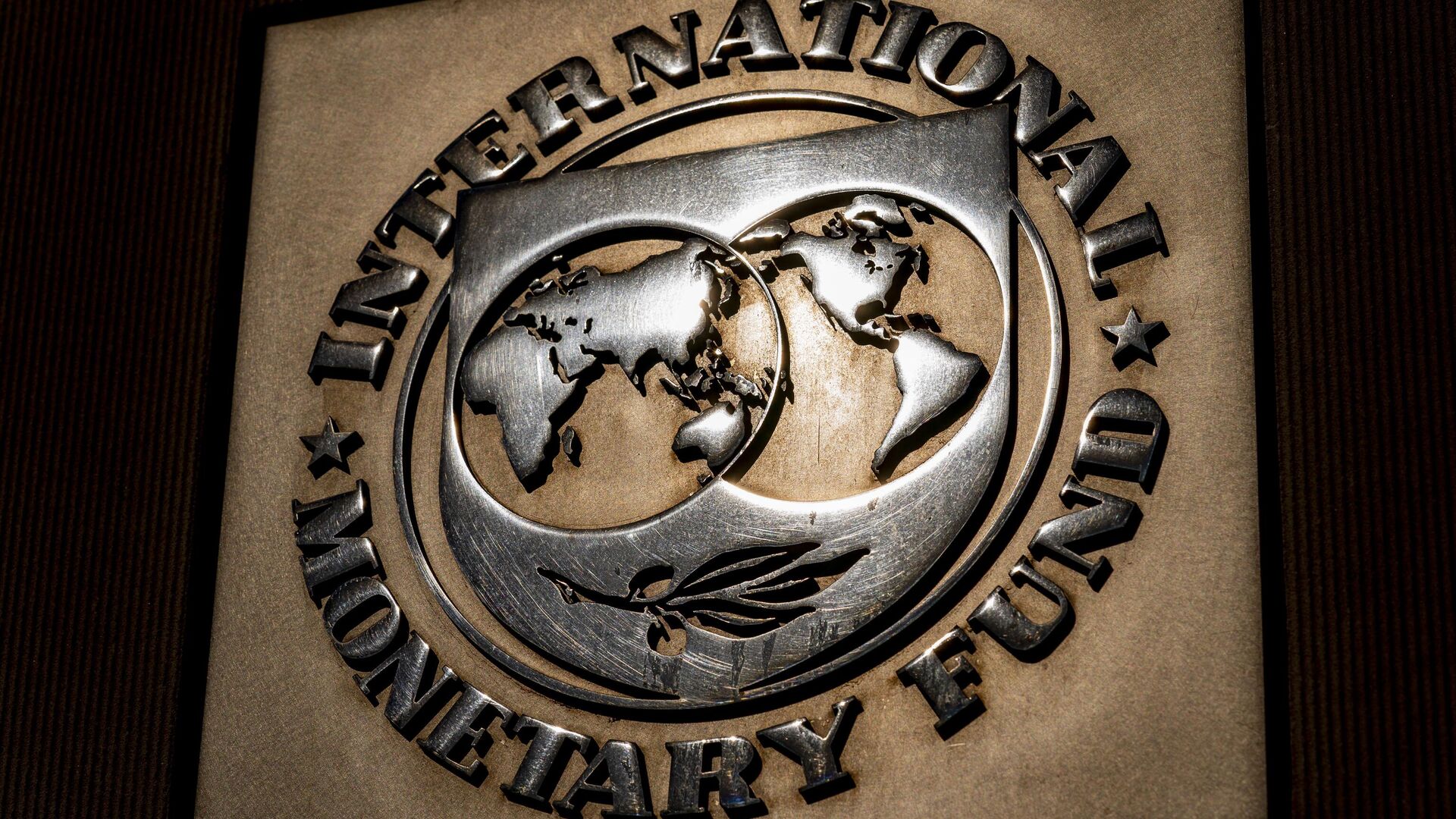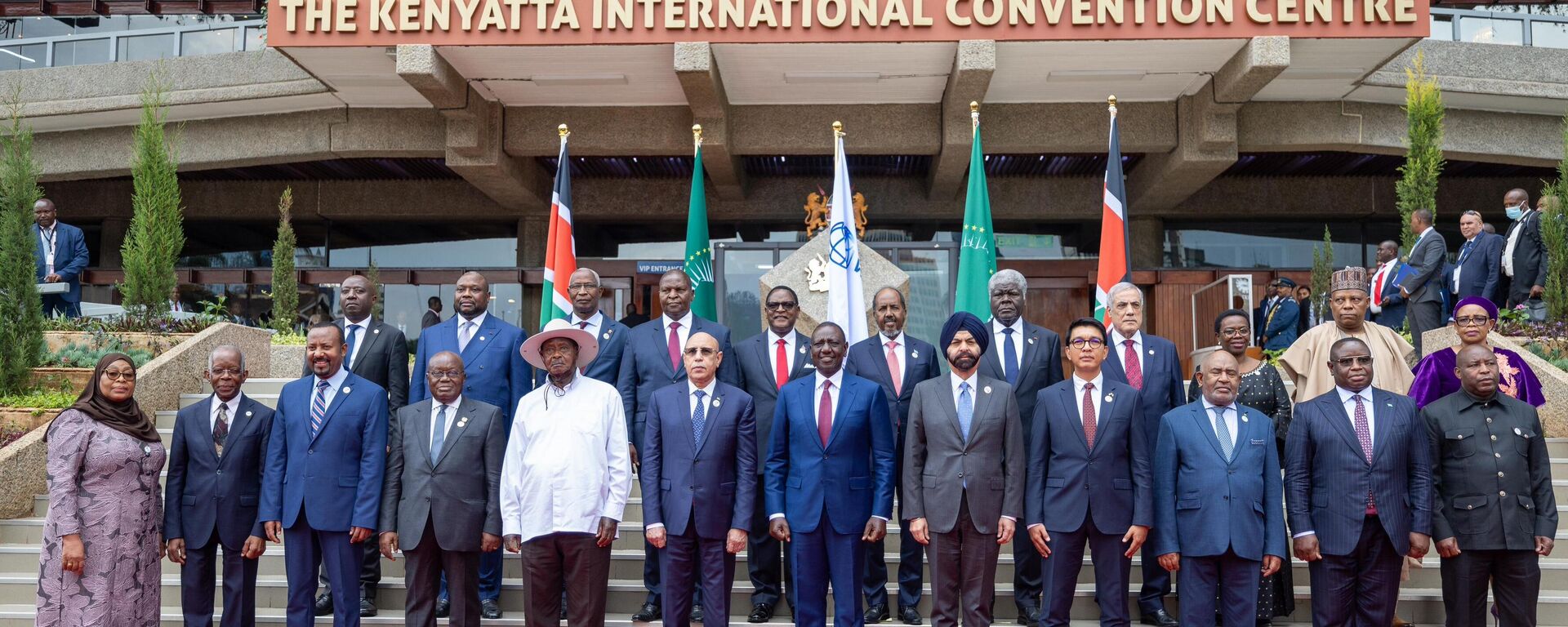https://en.sputniknews.africa/20240503/western-bretton-woods-institutions-invading-african-economic-governance-says-expert-1066352844.html
Western Bretton Woods Institutions 'Invading' African Economic Governance, Says Expert
Western Bretton Woods Institutions 'Invading' African Economic Governance, Says Expert
Sputnik Africa
Last week, the head of the African Development Bank, Akinwumi Adesina, said the continent's external debt had risen to $824 billion by 2021, with some... 03.05.2024, Sputnik Africa
2024-05-03T14:55+0200
2024-05-03T14:55+0200
2024-10-26T11:43+0200
opinion
africa insight
economy
russia
kenya
brazil
world bank
international monetary fund (imf)
brics
trade
https://cdn1.img.sputniknews.africa/img/07e7/06/1a/1060161856_0:160:3073:1888_1920x0_80_0_0_b12391309c50f647da2c55963ae72e46.jpg
Western Bretton Woods institutions such as the International Monetary Fund (IMF) and the World Bank are profit-oriented models that "invade" the economic management of the recipient country, Fredrick Onyango Ogola, Professor of strategy, economics and cooperate governance, Chief executive officer Africa health & economic transformation initiative, Kenya, told Sputnik Africa.The expert noted that by borrowing money from the IMF and the World Bank, most African countries sacrifice their sovereignty and are unable to create their own political climate or financial policies.In this vein, the analyst stressed that the West "takes advantage of us because of our weaknesses."Ogola also asserted that Africa cannot compete in the current global economic and financial architecture because it was designed before some countries became de facto independent and Africans were not involved. He urged the need for a redesign of the global financial architecture with African participation.One potential alternative proposed by Professor Ogola is the BRICS bank, comprising Brazil, Russia, India, China, and South Africa. He considers the institution, which is closer in mentality to African countries, as a potential counterbalance to the dominance of Western financial bodies.He also expressed hope that the BRICS bank would not impose its conditions on African countries when lending money, such as the World Bank, which talked about the possibility of suspending funding to Uganda when it passed an anti-LGBT* law.In this sense, the expert praised Russia's approach of offering grain to a country like Somalia without any conditions and supporting some countries in Africa without any strings attached.* The "LGBT movement" is classified as extremist by the Russian authorities and is banned in Russia.
https://en.sputniknews.africa/20240501/african-leaders-meet-in-nairobi-to-emphasize-world-bank-priorities-for-continental-financing-1066314531.html
russia
kenya
brazil
east africa
Sputnik Africa
feedback@sputniknews.com
+74956456601
MIA „Rossiya Segodnya“
2024
Maxim Grishenkin
https://cdn1.img.sputniknews.africa/img/07e7/0a/17/1063018107_0:0:1104:1103_100x100_80_0_0_03090c85a11f5d2e8a19cf1d989443c9.jpg
Maxim Grishenkin
https://cdn1.img.sputniknews.africa/img/07e7/0a/17/1063018107_0:0:1104:1103_100x100_80_0_0_03090c85a11f5d2e8a19cf1d989443c9.jpg
News
en_EN
Sputnik Africa
feedback@sputniknews.com
+74956456601
MIA „Rossiya Segodnya“
Sputnik Africa
feedback@sputniknews.com
+74956456601
MIA „Rossiya Segodnya“
Maxim Grishenkin
https://cdn1.img.sputniknews.africa/img/07e7/0a/17/1063018107_0:0:1104:1103_100x100_80_0_0_03090c85a11f5d2e8a19cf1d989443c9.jpg
africa insight, economy, russia, kenya, brazil, world bank, international monetary fund (imf), brics, trade, debt, bretton woods system, east africa
africa insight, economy, russia, kenya, brazil, world bank, international monetary fund (imf), brics, trade, debt, bretton woods system, east africa
Western Bretton Woods Institutions 'Invading' African Economic Governance, Says Expert
14:55 03.05.2024 (Updated: 11:43 26.10.2024) Last week, the head of the African Development Bank, Akinwumi Adesina, said the continent's external debt had risen to $824 billion by 2021, with some countries spending 65% of their GDP on debt service. He explained that loans offered to African governments in exchange for oil and other minerals are contributing to the continent's debt.
Western Bretton Woods institutions such as the International Monetary Fund (IMF) and the World Bank are profit-oriented models that "invade" the economic management of the recipient country, Fredrick Onyango Ogola, Professor of strategy, economics and cooperate governance, Chief executive officer Africa health & economic transformation initiative, Kenya, told Sputnik Africa.
The expert noted that by borrowing money from the IMF and the World Bank, most African countries sacrifice their sovereignty and
are unable to create their own political climate or financial policies.
"They [African countries] take their policy from the World Bank and IMF and sometimes World Bank and IMF help them draft their own economic and fiscal policy because the World Bank is financing them. They tell you to restructure. You've heard about the so-called structural adjustment programs being pushed by the World Bank. [...] So they invade your management of the economy," Ogola pointed out.
In this vein, the analyst stressed that the West "takes advantage of us because of our weaknesses."
"The Western Bretton Woods institution like the World Bank, IMF should give Africans money and not put conditions which have interests of other nations, because then that they're being tentacles of those nations. And this has been very well, misused," he opined.
Ogola also asserted that Africa cannot compete in the current global economic and financial architecture because it was designed before some countries became de facto independent and Africans were not involved. He urged the need for a redesign of the global financial architecture with African participation.
One potential alternative proposed by Professor Ogola is the BRICS bank, comprising Brazil, Russia, India, China, and South Africa. He considers
the institution, which is closer in mentality to African countries, as a potential counterbalance to the dominance of Western financial bodies.
"BRICS is an eastern set of leaning, and the culture of that bank might actually be closer to Africa. They might understand Africa because before, the World Bank and IMF used to pretend that they forced a culture of no corruption. [...] But we have discovered in the end that [it's] not exactly like this because corruption has been there even in the World Bank and has been there in the IMF, even the issue of moral behaviors," the expert emphasized.
He also expressed hope that the BRICS bank would not impose its conditions on African countries when lending money, such as the World Bank, which talked about the possibility of
suspending funding to Uganda when it passed an anti-LGBT* law.
In this sense, the expert praised Russia's approach of offering grain to a country like Somalia without any conditions and supporting some countries in Africa without any strings attached.
"But you see, Western nations tend to have strings attached," Ogola concluded.
* The "LGBT movement" is classified as extremist by the Russian authorities and is banned in Russia.



